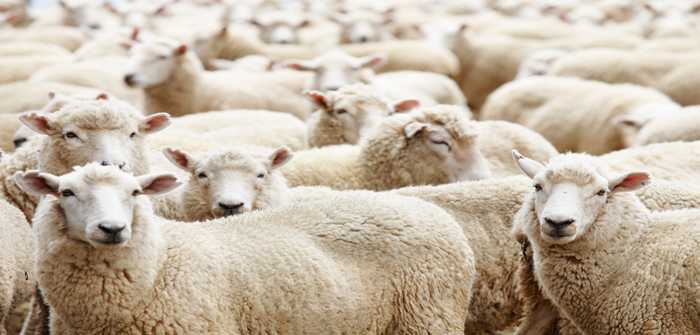Despite the threat from nematodirus being lower in spring 2019 than the two previous years, the SCOPS Nematodirus Forecast has once again proven itself to be a vital tool for farmers, vets and SQPs.
Speaking on behalf of Sustainable Control of Parasites in Sheep (SCOPS) group, Lesley Stubbings said: “Last year the challenge from nematodirus was later and more abrupt, following the ‘Beast from the East’, and resulted in clinical disease on many sheep farms. In contrast, 2019 has seen these worm eggs hatch more evenly, starting earlier and trickling on through the spring, which allowed lambs to acquire immunity to the Nematodirus worms and resulted in much less acute disease.
“But this hasn’t diminished the role of the SCOPS Nematodirus Forecast. If anything, it underlines the importance of a tool that can interpret the effects of different weather conditions from year to year, helping sheep farmers to target any treatments accurately.”
The SCOPS Nematodirus Forecast is an interactive map, updated daily, using data from more than 140 weather stations around the UK, tracking changes in risk of disease caused by the roundworm Nematodirus battus from early spring each year until the threat is considered to have passed in late June or July. A traffic light system is used to show the risk, based on a specially developed algorithm that tracks daily temperature.
Ms Stubbings added: “Vets and SQPs with farmer clients in multiple locations tell me they really value this added dimension, as they can see how the picture changes over time, as well as watching the colour changes of the dot nearest to them. We will certainly make both features available again next year, and keep the historical data on the website for 2019 so we can begin to build a history of disease over time.
“Further down the line, we would like to be able to differentiate areas where there is a mass hatch versus a trickle hatch, which would have been helpful this year.”
The SCOPS Nematodirus Forecast will be available again from March 2020. In the meantime, farmers, vets, SQPs and anyone else who used the tool and/or the wider SCOPS website this spring and summer is encouraged to complete a quick feedback survey, which is located HERE.


